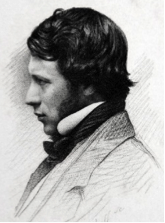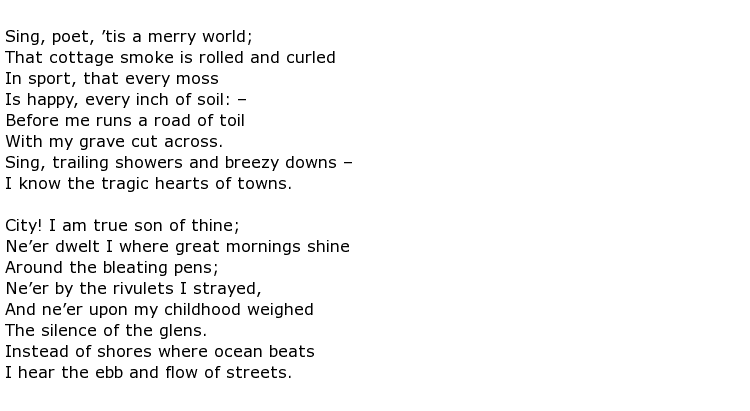 Alexander Smith was one of a group of Scottish poets who wrote during the mid-1850s under the name the “Spasmodics”. This was a school of poetry that was very popular for around two decades but then suddenly fell out of fashion even though it included the odd poem from such luminaries as Alfred Lord Tennyson and Elizabeth Barrett Browning. It is believed though that modern critics of literature tend to distance those two from this particular genre. Smith’s poetry, like his contemporaries, was sometimes described as bombastic and egotistical, a view based on the presence of long and introspective soliloquies in many of his pieces.
Alexander Smith was one of a group of Scottish poets who wrote during the mid-1850s under the name the “Spasmodics”. This was a school of poetry that was very popular for around two decades but then suddenly fell out of fashion even though it included the odd poem from such luminaries as Alfred Lord Tennyson and Elizabeth Barrett Browning. It is believed though that modern critics of literature tend to distance those two from this particular genre. Smith’s poetry, like his contemporaries, was sometimes described as bombastic and egotistical, a view based on the presence of long and introspective soliloquies in many of his pieces.
Smith was born in Kilmarnock on the 31st December 1829 into a large family of six children. His father was an artisan, producing printing blocks that could be used in the textile industry, particularly using muslin and calico. The family moved twice during Smith’s early years, eventually settling in Glasgow. Perhaps there was little money for a formal education and the young Alexander Smith found himself working in his father’s trade at the tender age of eleven. His time spent at a small parish school at least gave him rudimentary skills in literacy and he was a particularly keen student of English poets.
This was a boom time for cotton industries and Smith found himself tied to a factory working existence for at least twelve years. He wrote about this in his1857 poem, called A Boy’s Poem, which described the hardships of such an environment and the joy to be had from the annual two-week break when the family would take a paddle steamer up the River Clyde to a pleasant resort far from the noise and smells of factory life. All the while though he was teaching himself to write poetry, really with a view to bettering himself. He became the first secretary of the newly formed Glasgow Addisonian Literary Society. He and other young men met once a week, above a coffee house, between the years 1847 and 1852.
He was married in 1857 to Flora Macdonald, an ancestor of the lady of the same name who aided Bonnie Prince Charlie’s escape from the Isle of Skye. They married on the island but went to live in Edinburgh, only returning to Skye for holidays. Smith was not to know that he only had a few more years of life left to him but it is believed that he produced his best work during this time. A good example of this was the long poem A Life Drama which brought him much praise in London literary circles. Some even compared his work to that of Tennyson and Arnold. Here is an extract from it:

The third and fourth lines of the above extract appeared to Smith’s premonition of an early death. His health was not good in his later years, quite likely as a result of severe financial worries. He was working hard to make a living for his wife and four children from writing but it was a constant struggle.
In November 1866 he fell ill with diphtheria which was rapidly followed by typhus. He died on the 5th January 1867 aged just 37.

